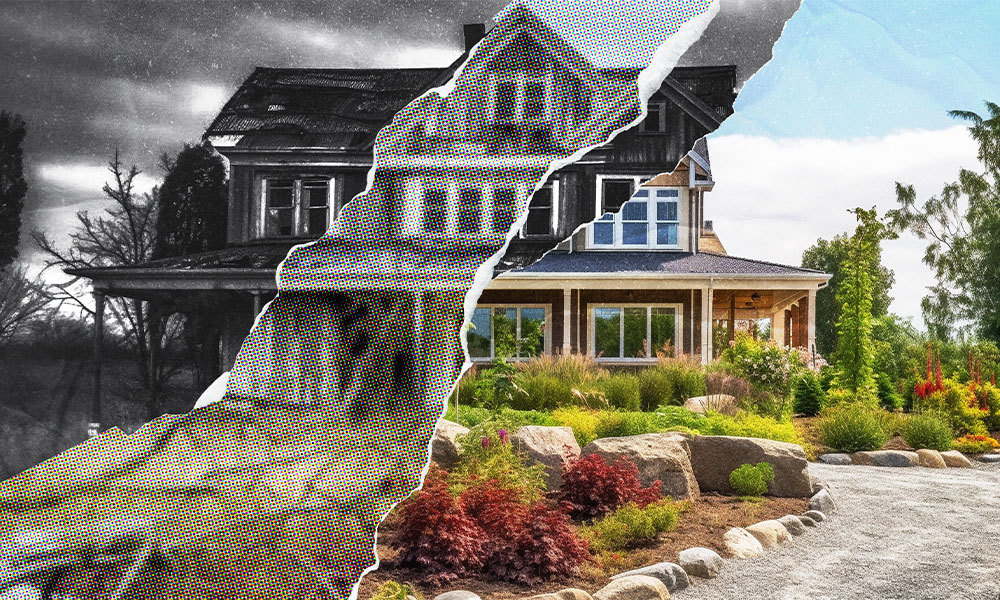 Contact
About Us
Articles
Home
Contact
About Us
Articles
Home

The transition of an aging parent into senior care marks a significant turning point for many families, often bringing to the fore a complex and emotionally charged decision: whether to keep or sell the parent's home. This decision extends far beyond simple financial calculations, deeply intertwining with the emotional fabric of the family.
The family home often embodies a treasure trove of memories and history, making the decision emotionally weighty. For the aging parent, the home may represent a lifetime of hard work and memories, a physical anchor to their past and identity. For family members, the home might symbolize their childhood, family gatherings and milestones, making the thought of selling it feel like closing a significant chapter in their lives.
On the other hand, financial considerations play a critical role. The decision could have far-reaching implications for the parent’s care and the overall financial health of the family. Keeping the home might mean tapping into a valuable asset for rental income or banking on its future appreciation. Conversely, selling the home could provide immediate funds to support the parent's care needs, alleviate the burden of maintenance costs or potentially simplify future estate settlements.
This decision often surfaces at a time of heightened stress and emotional vulnerability. The transition to senior care can be a difficult period for both the aging parent and the family, fraught with concerns about health, independence and change. Deciding the fate of the family home amid these emotions can add an additional layer of complexity to the situation.
Understanding the full spectrum of implications – financial, emotional and practical – is crucial in making an informed decision. Each family must weigh the sentimental value of the home against the financial realities and future planning needs. It’s a decision that requires careful consideration, open family communication and professional guidance.
In essence, deciding whether to keep or sell an aging parent’s home following their move to senior care is a multifaceted choice that can significantly impact the family's future. It's a decision that intertwines the heartstrings of the past with the practicalities of the present and future, necessitating a balanced approach that respects both emotional attachments and financial realities.
When an aging parent transitions to senior care, families are presented with multiple paths regarding the future of the parent's home. Each option comes with its unique set of considerations and potential outcomes. Here are some of the available options:
Each of these options requires careful consideration of the family’s financial situation, the real estate market and the emotional ties to the property. The decision of what to do with an aging parent's home is rarely straightforward and often involves balancing practical financial needs with the sentimental value that the home holds for the family.

Retaining ownership of an aging parent's home can offer a multitude of benefits, ranging from emotional connections to financial advantages. This decision, while complex, can provide significant rewards for the family.
The family home often serves as a repository of cherished memories, holding immense sentimental value. It's a tangible link to the past, preserving the history and legacy of the family.
Keeping the home allows family members to maintain this connection, offering a sense of continuity and comfort. It can be a place where generations have grown up, celebrated milestones and gathered for holidays, making it a priceless emotional asset.
Financial benefits of keeping the home may include:
Retaining the home offers the flexibility to sell or rent it at a later date, should the family's circumstances or the real estate market change. This allows the family to make future decisions based on the most current and beneficial situation. Keeping the family home can be a significant aspect of estate planning. It allows the family to retain an asset that can be passed down to future generations, keeping the property within the family lineage.
The home can also serve as a substantial part of the aging parent's estate, potentially aiding in balancing estate distributions among heirs.
Indeed, the decision to keep an aging parent's home offers a blend of emotional and financial advantages. The sentimental value of maintaining the family home, combined with the potential for rental income and property appreciation, presents a compelling case for retaining the property. Additionally, the flexibility it offers for future family use or as a strategic asset for later liquidation provides a range of options for families to navigate their evolving needs and circumstances.

While retaining an aging parent’s home can have its advantages, there are also several downsides that families must carefully consider. These range from financial obligations to management challenges and emotional strains.
Some of the financial burdens of keeping the home include:
If the decision is made to rent out the property, the family takes on the role of landlord, which includes finding and managing tenants, collecting rent and handling lease agreements. This can be time-consuming and sometimes challenging, especially if tenants encounter issues or conflicts arise.
Rental properties require regular maintenance and occasional repairs, which can be costly and require prompt attention. Managing these repairs, either personally or through a property manager, adds an extra layer of responsibility.
Being a landlord comes with legal responsibilities, including adhering to landlord-tenant laws and ensuring the property meets safety and habitability standards. This also includes accounting for rental income and related expenses for tax purposes.
Also, there can be emotional challenges and stress associated with maintaining an unoccupied home. Concerns about security, vandalism or deterioration can be worrying, especially if the property is in a different location from where the family members reside.
Managing a tenant-occupied property can also be emotionally taxing. Issues like late rent payments, property damage or disputes can lead to stress and frustration. Decisions regarding property management can sometimes lead to disagreements or conflicts among family members. Differing opinions on how to use, maintain or manage the property can strain family relationships.
In considering whether to keep an aging parent's home, it's essential to weigh these disadvantages against the potential benefits. The financial responsibilities, management duties and emotional stress that come with property ownership are significant factors that can impact the family's well-being and finances. Families need to assess their capacity to handle these challenges and determine if keeping the home aligns with their overall goals and circumstances.
Selling an aging parent’s home can bring several key benefits, particularly from a financial and practical standpoint.
The sale of the home can unlock the equity built up over the years, providing a significant financial resource. This can be especially crucial if the parent's senior care needs are extensive, as the proceeds can be used to cover care expenses, medical bills or other necessary costs.
Accessing this equity can alleviate financial pressures on the family, especially if there are no other substantial assets or savings to draw upon.
Selling the home also can streamline the estate planning process. Without real estate to consider, the estate becomes simpler to manage and distribute among heirs, potentially reducing legal complexities and costs.
This simplification can lead to a more straightforward and quicker settlement process for heirs, reducing the time and effort involved in managing and closing the estate.

Selling the property frees the family from the responsibilities and costs associated with maintaining a home. This includes ongoing expenses like property taxes, insurance, utilities and repairs.
The burden of property management, especially if the family members do not live nearby, is eliminated. This can be a significant relief, particularly for families already dealing with the demands of supporting an aging parent.
Selling a family home is not without its drawbacks, predominantly emotional and financial. For many, the home is more than just a physical structure; it's a repository of cherished memories and a symbol of family history.
The decision to sell can bring feelings of loss and nostalgia, not just for the aging parent but for all family members who have emotional ties to the home.
Also, there can be significant tax implications when selling a property, particularly if it has appreciated in value. Capital gains tax may apply, which can affect the overall financial benefit of the sale.
Additionally, selling the home means losing out on potential future appreciation. Real estate is often a sound long-term investment, and selling could mean missing out on further increases in property value.
Several key factors should influence the decision to sell or keep the home. They include:
Alliance America is an insurance and financial services company dedicated to the art of personal financial planning. Our financial professionals can assist you in maximizing your retirement resources and achieving your future goals. We have access to an array of products and services, all focused on helping you enjoy the retirement lifestyle you want and deserve. You can request a no-cost, no-obligation consultation by calling (833) 219-6884 today.


